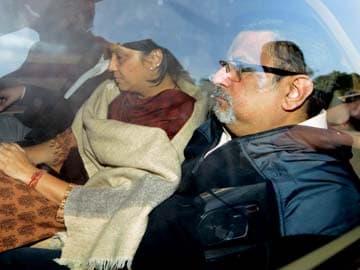
Rajesh and Nupur Talwar have been sentenced to life in jail after being convicted in the 2008 killing of their teen daughter Aarushi and domestic help Hemraj. The CBI had sought the death penalty for the dentist couple, classifying this case as the "rarest of rare." The Talwars' defence counsel said the couple would 'fight till their last drop of blood.'
Here are the 10 big developments in the story:
Reacting to the order, Aarushi's aunt Shree Paradkar said: "the freaks are the investigating agency."
Yesterday, the judge who convicted them had said that the Talwars were "freaks in the history of mankind where the father and mother became the killer of their own progeny."
The Talwars, both dentists, were convicted yesterday for the murder of their teen daughter Aarushi and Hemraj, the Nepalese domestic help who lived with them.
The judge also found them guilty of destruction of evidence. In his verdict, Judge Shyam Lal compared the couple to "freaks in the history of mankind where the father and mother became the killer of their own progeny." (What the judge said on Nupur, Rajesh Talwar)
The Talwars' lawyers have said they will appeal against the verdict in a higher court. In a statement released yesterday, the Talwars said, " We are deeply disappointed, hurt and anguished for being convicted for a crime that we have not committed. We refuse to feel defeated and will continue to fight for justice."(Talwars' statement after the verdict)
13-year-old Aarushi was found with her throat slit in her bedroom at the family apartment in Noida on May 16, 2008. Because Hemraj was missing, he was declared the suspect. But hours later, his corpse was found on the terrace of the apartment building. (Case timeline)
Rajesh Talwar was arrested seven days after the murder and spent two months in jail before being granted bail when the CBI said it had no evidence against him. Later, his wife Nupur was jailed for five months for ignoring orders to appear in court.
There is no forensic or material evidence against the Talwars. The CBI says its case is based on the "last-seen theory" -- which holds that the victims were last seen with the Talwars on the night that the murders were committed.
In December 2010, the CBI said it had no evidence against the Talwars and asked the court for permission in court to close the case.
The Talwars challenged the CBI's request to end the investigation; the judge then ruled the case would continue and that the couple would stand trial for murder.

